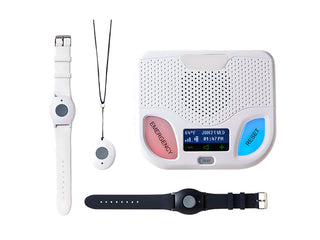It's easy to feel stressed on a daily basis—stress is normal even during your retirement years. Though it can be difficult to identify the cause for tension and worry, one thing is certain: stress can be detrimental to your health.
In fact, the National Institute of Mental Health finds that routine stress can "contribute to serious health problems, like heart disease, high blood pressure, diabetes and other illnesses, as well as mental disorders like depression or anxiety."
To avoid becoming stressed, try using our simple ways to reduce and manage it. Implementing even a few of these approaches can make a big impact on your overall health and well-being. If you’re weary of trying new physical and mental exercises, using a medical alert system like MobileHelp will keep you safe during any unanticipated events.






